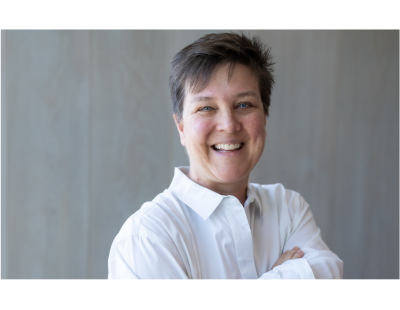
Keynote conferences > Deborah L. NelsonOUR PERISHABLE WORLD Thursday, October 2nd from 5:30 PM to 6:30 PM Centre des colloques, Amphitheater 250 Deborah L. Nelson is the chief academic and operating officer for the Division of the Humanities. She is responsible for recruiting and retaining an exceptional faculty, advancing graduate programs and undergraduate concentrations in the humanities, and securing the budgetary and administrative infrastructure necessary to support humanistic research at UChicago. Her book Tough Enough: Arbus, Arendt, Didion, McCarthy, Sontag, Weil won the Modern Language Association’s James Russell Lowell Prize for Best Book of 2017, and the Gordon J. Laing Prize in 2019 for the most distinguished contribution to the University of Chicago Press by a faculty member. Tough Enough has now been translated into Spanish, Korean, and German with forthcoming translations in Chinese and Turkish. She is also the author of Pursuing Privacy in Cold War America and articles published in PMLA, American Literary History, Contemporary Literature, Feminist Studies and in several edited collections. Nelson led a Mellon-funded Sawyer Seminar called “@1948” and edited with Leela Gandhi a special issue of Critical Inquiry devoted to the topic. She is a founding member of the research collective Post45. She has been the Chair of the Department of English (2017-2023), the Deputy Provost for Graduate Education (2011- 2015) and the Director of the Center for the Study of Gender and Sexuality (2006-2009). She has continued her work on graduate education with grants from the NEH (Next Generation Implementation Grant) in 2016 and the Mellon Foundation (Scholarly Careers Initiative) in 2018. She was elected a fellow of the American Academy of Arts and Sciences in 2024. Conference : We tend to leave off the subtitle of Eric Auerbach’s masterpiece, Mimesis, which he stressed was a “book that a particular person, in a particular situation, wrote at the beginning of the 1940s”: The Representation of Reality in Western Literature. The “situation,” we might speculate was identified by his fellow exile, Hannah Arendt: “The ideal subject of totalitarian rule is…people for whom the distinction between fact and fiction (i.e. the reality of experience) and the distinction between true and false (i.e. the standards of thought) no longer exist.” They were not alone. Andre Bazin developed his theories of cinematic realism during the war in occupied Paris; the Italian Neo-Realists demonstrated its power afterward; Camus folded an argument for realism into the novel The Plague and there are many more examples. But not only in the realm of aesthetics did realism find its champions; so too did political realism, moral realism, and theological realism advance as prerequisites for a new, as yet unknowable, postwar world. The US, too, absorbed and contributed to this collective undertaking, perhaps surprisingly so. In fact, we could argue that realism was Europe’s most successful export, one that shaped US politics and artistic production for decades after the war in ways that remain little appreciated. This talk will attempt to understand not what realism was – there have been seventy years of these debates—but why it mattered, what motivated its practitioners, and how it was meant to restore and reform the audiences that consumed it. Debate moderated by Laure De Nervaux Gavoty (IMAGER, Université Paris-Est Créteil)
Deborah L. Nelson |


